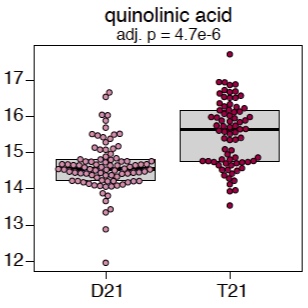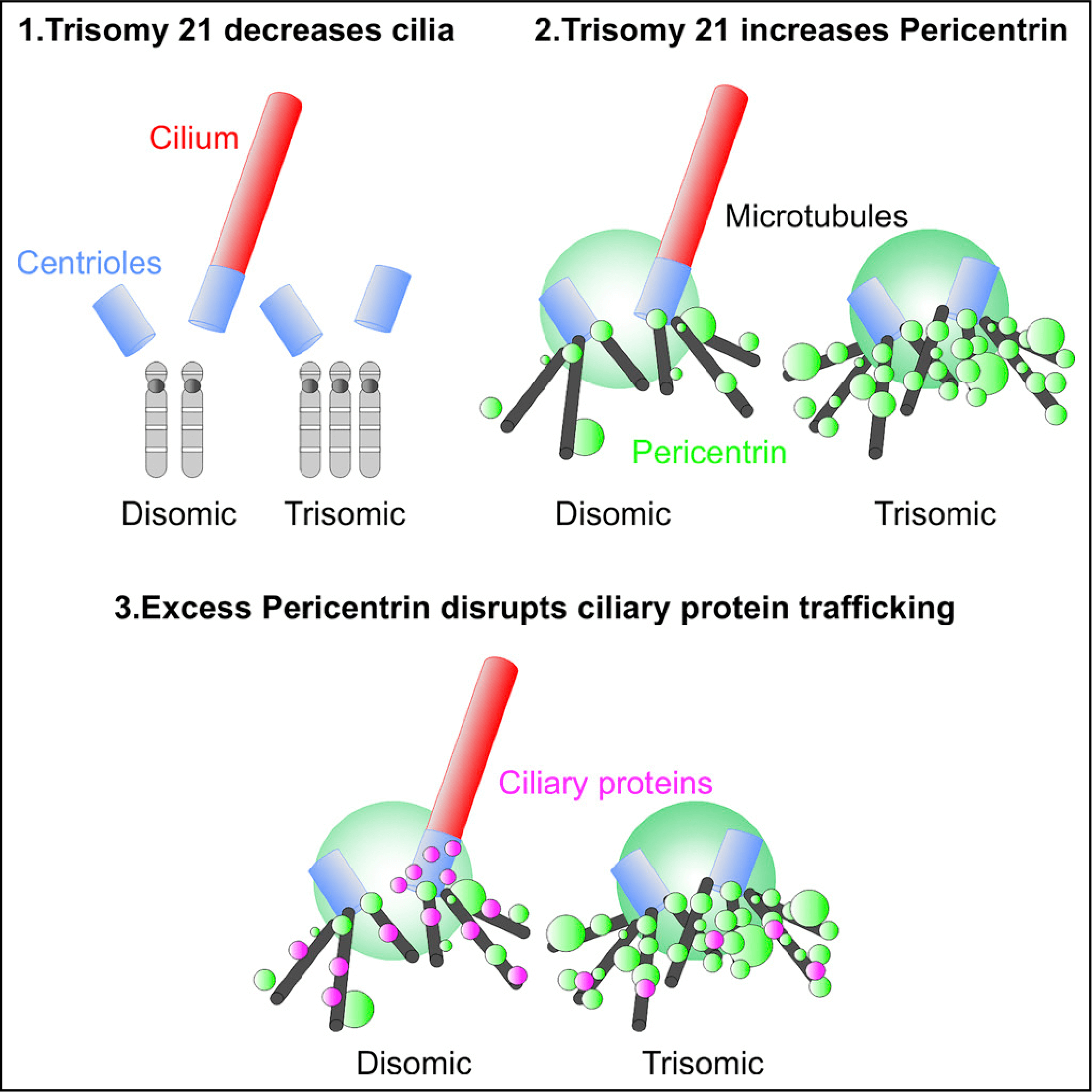Trisomy 21 dysregulates T cell lineages toward an autoimmunity-prone state associated with interferon hyperactivity
This project took a deep dive into the T cell biology of people with Down syndrome. T cells are an important cell in the immune system. There are numerous types and subtypes of T cells, each with specific functions in the immune response. For example, “cytotoxic T cells” kill dangerous cells infected by virus or from tumors…..
Trisomy 21 activates the kynurenine pathway via increased dosage of interferon receptors
In this study, our scientists measured 91 metabolites using mass spectrometry and compared the levels of each metabolite in people with Down syndrome to those without. They found 29 metabolites whose levels were significantly altered in people with Down syndrome. The metabolite that was most significantly elevated was quinolinic acid…..
Trisomy 21 Represses Cilia Formation and Function
After observing that Down syndrome and various ciliopathies have many clinical overlaps, including cardiovascular, musculoskeletal, and neurological abnormalities, our scientists decided to investigate cilia function in Down syndrome. They found that trisomy 21 deregulates the expression of numerous ciliary genes…..
New characterization of MORC3, a chromosome 21 gene
MORC3 is a chromosome 21 encoded gene linked to inflammatory muscle diseases and cancer; however, its role in normal cell physiology and disease is poorly understood. Here, scientists evaluate the expression of MORC3 in trisomy 21 cells and human samples, and perform detailed genetic, biochemical, and structural analyses of MORC3…..
Trisomy 21 activates the interferon response
It is well known that a third copy of chromosome 21 (trisomy 21) causes Down Syndrome; however, the molecular processes that occur as a result are not well understood. In this landmark publication, our scientists used complementary genomics techniques and transcriptome analyses on multiple cell lines and human blood samples to show that trisomy 21 consistently activates the interferon signaling cascade across a variety of cell types…..





